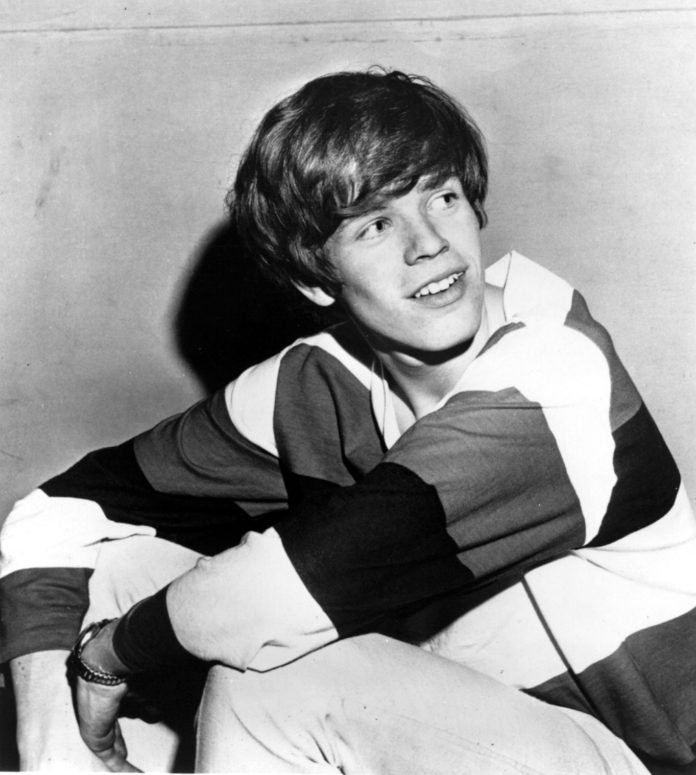British musician Peter Noone began his career in show business as a child actor on such British television shows as “Coronation Street.” But he has been known for more than 50 years as the Herman fronting the U.K. pop group Herman’s Hermits, which churned out nearly a dozen top-10 hits from 1964 to 1967, briefly knocking the Beatles off the charts.
At 69, Noone continues singing those popular songs, including “I’m Into Something Good,” “Wonderful World,” “A Must to Avoid” and “Listen People,” and he’s now touring with a new group of Hermits.
We spoke to Noone recently from his home in California about the band’s secret ingredients.
Q: Amid the blizzard of British bands in the 1960s, how did Herman’s Hermits build a following?
A: We did odd songs. Every band was playing the same songs. We had these weird, outside songs, so we were kind of a novelty.
Q: By odd things, does that include those old British music-hall songs you revived like “I’m Henry VIII, I Am”?
A: Yeah, those kind of things. Like, we’d do “Mrs. Brown, You’ve Got a Lovely Daughter.” We did “Mashed Potato”; nobody did that. … We had this fun, amusing, don’t-take-ourselves-serious (attitude). It was like self-deprecation music. We knew that we were not sexy, so we couldn’t go “Since my baby left me,” so we did “My Boy Lollipop.” People got the joke. And we’d sing “Mother-in-Law,” because a 15-year-old singing “Mother-in-Law” is a really great joke.
Q: But those old music-hall songs, which date to 1910 …
A: Well, if you’re from a musical family, you got access to those songs. They weren’t recordings, they were songs. So they weren’t exactly the same. If you listen to the original “Henry the VIII,” it’s nothing like my version.
When I do a concert in England, there isn’t a single person in the audience who doesn’t know every single word to “Mrs. Brown, You’ve Got a Lovely Daughter.” … It’s overplayed in England, but I always sing it there because the audience likes it. And “Henry the VIII,” it’s just part of everybody. Everybody in England knows that song, so I always do that one. I cut it short, because I think people in England are sick of going H-E-N-R-Y. They’re just sick of it. Because it’s been going for 100 years now.
Q: When you were discovered by producer Mickie Most, things went rather quickly, right?
A: We went into the studio and we recorded this song called “I’m Into Something Good.” Two of us were 16, one was 17, one was 18, and we had this old guy in the band who was 20. We thought we were in the competition. If the music business was competition, we didn’t think it was ridiculous to try and compete with people like the Beatles and the Shadows. We were all in, and you could hear it on the record.
Q: What happened once it became a hit?
A: When it gets on the radio, then you connect to all the people who have never heard of you. We had a following, but immediately it became 1,000 times bigger just overnight. So now we were on tour with Dusty Springfield and played to 2,800 people every night, and then we went to America and played to 28,000 people a night – whoosh, just like that. We never thought about it, we just said yes to everything.
Q: Was part of your appeal just being so British at a time when British music and fashion were so popular?
A: Oh, we played on that. Because right from the beginning I said I refuse to sing with an American accent, like all of the others. We’ve got to be different. I’m always going to sing with my accent. And sometimes I’ll change accents.
English people will know “Mrs. Brown, You’ve Got a Lovely Daughter” is from Yorkshire or maybe Manchester. “Leaning on the Lamppost,” I’m definitely from Yorkshire. “Henry the VIII,” I’m from London.
Q: What were the other factors to your success?
A: We were the biggest act in America in 1965 because the Beatles were deciding not to tour, and they were going to go into the studio and make “Sgt. Pepper” and whatever they were doing. We would see them in the studio, we didn’t know what they were up to, we just knew that they weren’t touring.
Q: In addition to covering songs by Sam Cooke and the Rays, you had hits from a lot of great songwriters of the day. Were they all pitched to you?
A: That’s what happens. And then the Monkees came along, and they got all the songs pitched to them that would have come to us. But we knew that would be the case. We knew right behind Bobby Rydell would be Fabian, and right behind Fabian would be someone else. We knew there was an order to things. We had a good run. I think we had about 20 hits when we got to “There’s a Kind of Hush.”
Q: Why do you close your set with “There’s a Kind of Hush”?
A: You know, for some reason it touches people. I say, “There’s a kind of hush,” and they all sing, “all over the world.” And we do “Ferry Cross the Mersey” (by Gerry and the Pacemakers), and for some reason that touches people. There’s this line in it – “we don’t care what your name is boy, we’ll never turn you away.” Because in Liverpool they have the Liver Building, which is like the Statue of Liberty, which says welcome. So you know, that’s pretty poignant right now.






